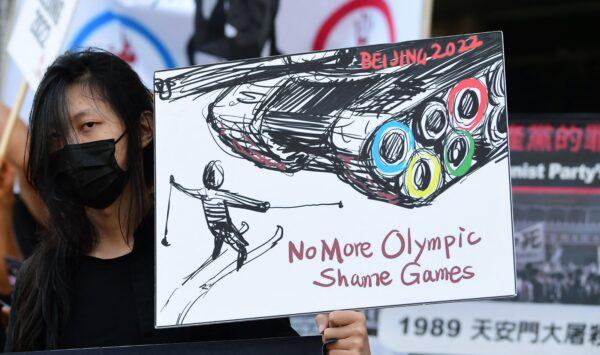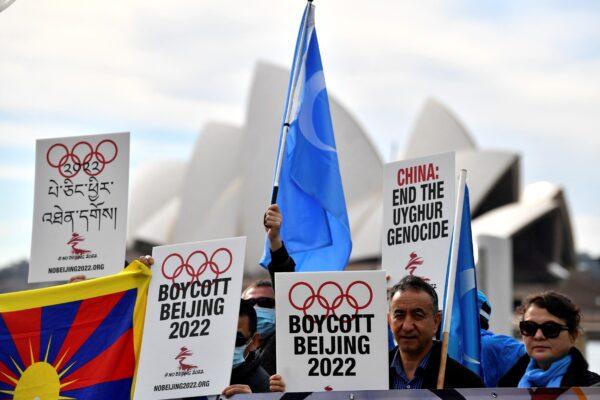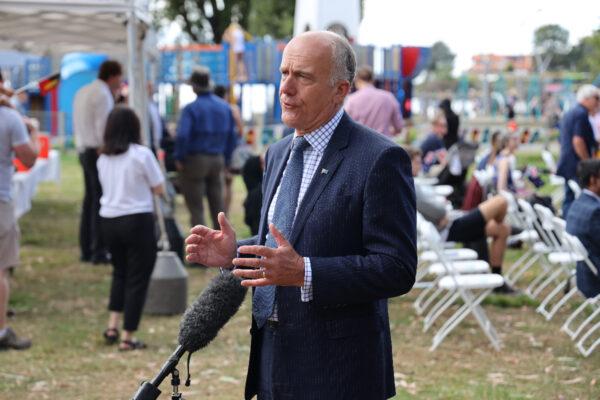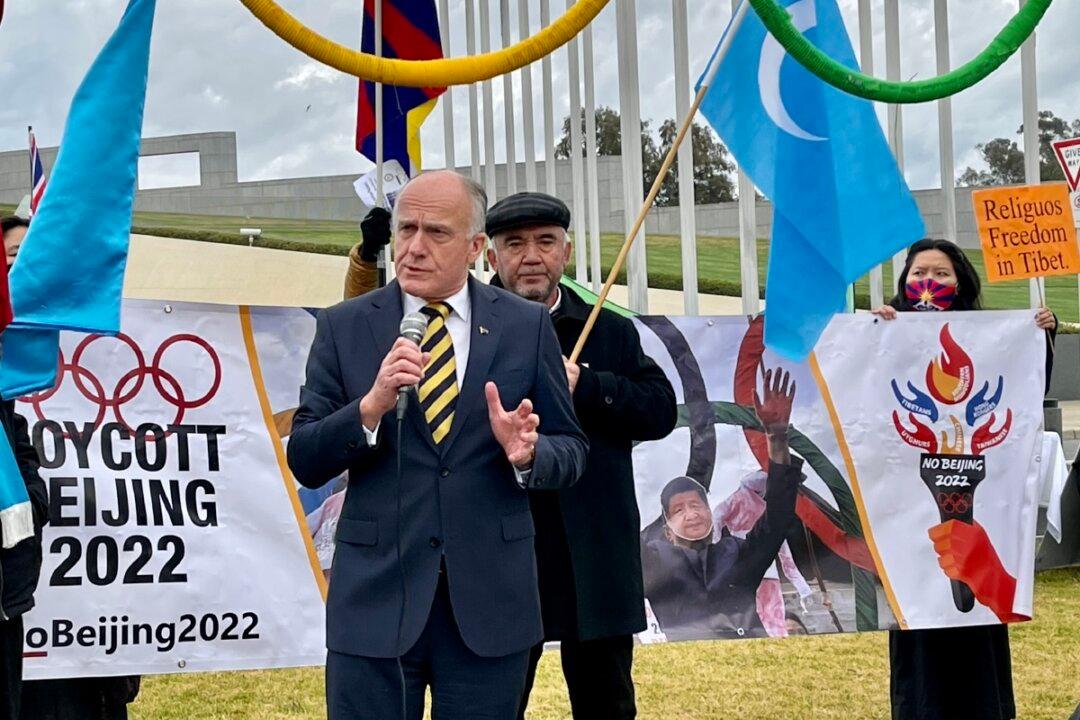An Australian senator is pushing back on Beijing’s claim that it doesn’t care whether foreign representatives attend its upcoming Winter Olympic Games while denying concerns about its human rights records.
“I would ask all leaders of countries that are not competing to not go to the Olympics, any tourists that were thinking of watching the Olympics, please don’t go,” Sen. Eric Abetz, who chairs the foreign affairs, defense, and trade committee in the Parliament of Australia, told The Epoch Times on Dec. 6.
“Say to the dictatorship: ‘We know what you’re up to, and we do not respect [it],’” the senator, known for his conservative politics, said. Abetz was referring to “deeply ingrained” human rights violations happening at the hands of the Chinese Communist Party (CCP).
“No one would care whether these people come or not,” Zhao said, after being asked on Dec. 6 about a potential Olympic boycott by the Morrison government of Australia.
The remarks “astounded” Abetz, which he said were “childish” and “would defy any common-sense analysis.”
“There is no doubt that the dictatorship wanted to be the center of world attention,” he said.
“It’s like somebody saying, ‘I’m not going to come to your birthday party,’ and then you respond by saying, ‘Well, I wasn’t going to invite you anyway.’ This is childish, and once again, puts Chinese diplomacy in a very poor light,” the senator said.
“And it makes you wonder: Do they [CCP officials] really understand or do they really believe their own propaganda?”

A diplomatic boycott was announced by the White House on Dec. 6, following Lithuania on Dec. 3, saying that Washington “cannot proceed with business as usual” in the face of the communist regime’s “ongoing genocide and crimes against humanity.”
Australia became the next country to follow suit on Dec. 8.
He told The Epoch Times that blame lay with the IOC, rather than athletes, for accepting Beijing’s Olympic bid.
“[The IOC] should never have allowed Beijing to host the Olympics, in breach of all the human rights values and standards that the Olympics stands for, and one really has to ask how on earth was this decision made,” he said.

Human Rights Record ‘Appalling’
Abetz told The Epoch Times he finds the CCP’s mistreatment of its citizens “appalling.”“[The CCP] believes it can take the law into its own hands and deal with you,” he said, adding that its influences are designed to undermine a free society.
Beijing rolled out trade sanctions on Australian goods—such as coal, wine, barley, beef, lobster, timber, and cotton—after Canberra called for an independent inquiry into the origin of the pandemic.
Abetz said: “We have suffered some trade consequences for simply asking that which most other countries would have voluntarily agreed to. But there are certain things that are simply not for sale. And of course, our freedom is number one on that list.”
The regime’s treatment of non-Chinese journalists also worries the senator.
‘It Does Hurt’
The German-born senator, a long-time advocate for an end to human rights abuses by the CCP, said he has encountered difficulties with the Chinese regime during his long political career.Abetz, 63, was first elected in 1994 as a Liberal senator for the Australian state of Tasmania. He served as the government’s most senior cabinet minister and the main government spokesperson in the Senate in former prime minister Tony Abbott’s government.

“I’ve always been at pains to let people know that my issue is not with any Chinese person, or the Chinese people, [but] a very small group called the Chinese Communist Party dictatorship. ... It is very easy for some people who seek to defend this horrendous regime to throw the tag ‘racist’ at you,” Abetz said.
He called such racial profiling “ugly phrases,” which are the easiest way to push back against accusations about the regime.
“It does hurt,” the senator said. “And in fact, the death penalty, the forced organ harvesting, concentration camp slave labor goes on.”
The senator once ignited fierce responses after asking three Chinese Australians about their attitude toward Beijing during a Senate committee hearing last October. The three refrained from directly condemning the regime and have since publicly criticized the senator for his line of questioning.

Yet “the little burden,” as Abetz called it, pales into insignificance compared to that of the victims under China’s communist dictatorship.
“If I were a Christian, if I were a Falun Gong practitioner, if I were a Hongkong[er] seeking democracy and pursuing democracy, would I want the people in public life in Australia to be saying the sort of things that I’m saying today without fear or favor?” he said.
“Yes, I would.”
During the early stage of the global pandemic, Beijing also leveraged Australia’s sensitivities around the issue of racism and alleged that Chinese people were experiencing a “significant increase” in racism.
The allegations came after Australia introduced new and more stringent foreign investment laws that could potentially block Chinese companies—as China began to face further internal economic turmoil.




